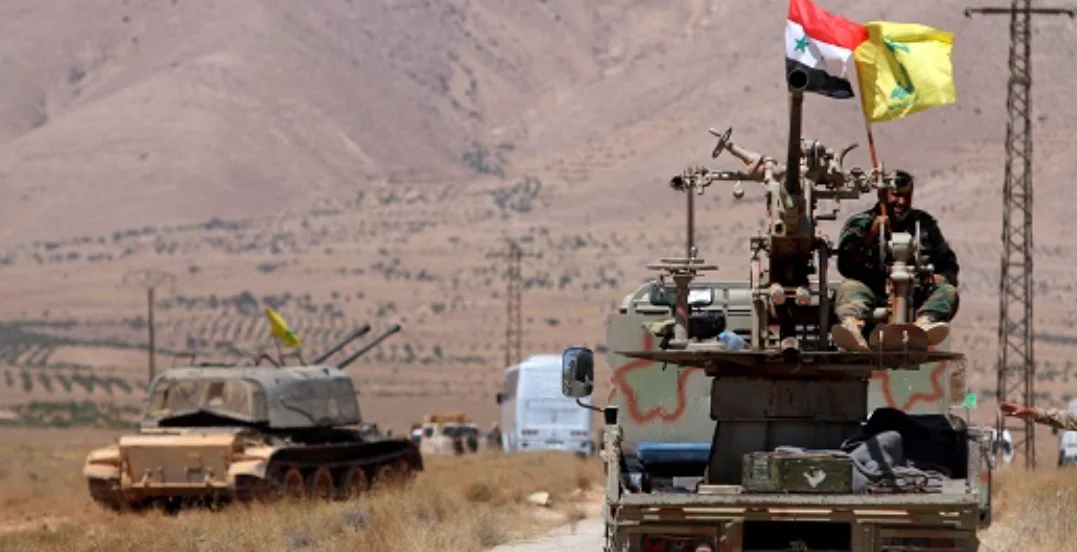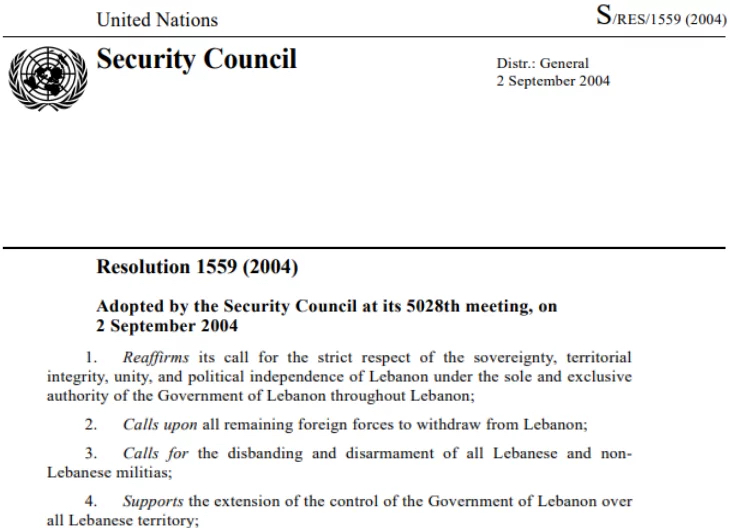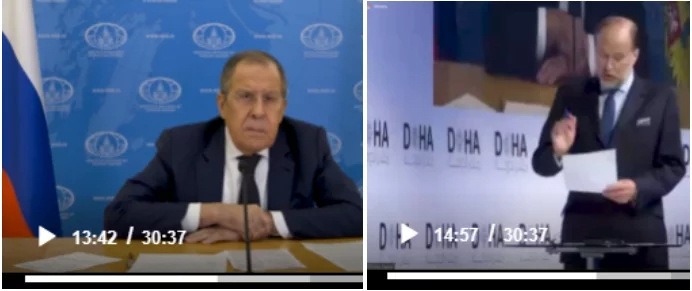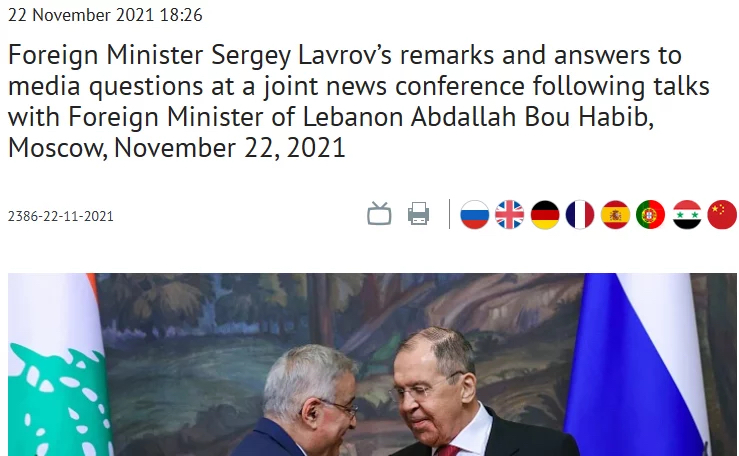Yves here. John Helmer gives a detailed and nuanced discussion of what Russia is doing, and importantly not doing, with respect to the war in Gaza. The bottom line is Russia is better served if things continue on a slow boil in the region, since that will continue to sap US resources without (hopefully) escalating to a hotter war. In addition, Russia has a clear policy as to when to step up and get involved in a conflict, and it’s when it is asked by states, not by various “liberation” groups or proxies.
A couple of additional thoughts: One could also characterize Russia’s posture as “Don’t get in your enemy’s way when he is making a mistake.” The US is losing massive amounts of soft power. Russia has been very active on the diplomatic front, witness its cooperation with other US-and-Israel-opposed members of the Security Council and even more important, Putin’s recent tour through Middle Eastern capitals.
Even though it is distressing to see the slaughter in Gaza continue and apparent inaction by all of Israel’s neighbors, only the US could stop it any time soon and the US won’t. Houthi harassment of shipping is proving to be effective, since it jacks up maritime insurance rates for transport in and out of Israel and is another blow to Israel’s economy. And it appears no one is keen to go after the Houthis directly since they could credibly turn Saudi oil fields into infernos. As I understand it, Hezbollah has been engaging in a deliberately proportional tit for tat with Israel, which Israel is apparently seeing as intolerable. Israel basically announced Hezbollah needs to cut it out or there will be consequences. This seems like a bizarre threat since despite its propaganda, the IDF is not doing all that well in Gaza (reports of high casualties and regardless, little progress in taking out Hamas fighters or penetrating the tunnels, so the really hard fighting is yet to come). It is hard to see how the IDF can afford to tax itself further. Moreover, as the Helmer piece indicates, Russia could join if asked by Lebanon, say by providing air cover…but Russia in the past did comparatively little, although the one request from Lebanon, per Helmer, was in 2019 when the IDF flew drones over Lebanon, which Russia may not have regarded as sufficient to justify intervention.
Finally, consider that Russia (Putin in particular) has been friendly to Israel. There are many Russian Jews in Israel. Putin is one of the few world leaders Netanyahu can still get on the phone. Russia’s Jewish population is peanuts compared to its Muslim population but some readers contend that Jewish oligarchs wield influence. While that may be a factor, Putin for the moment seems to regard it as winning play to be able to talk to both sides in the conflict….ex the US enabler, which since it is politically not able to check the Israel extermination, practically does not matter much.
By John Helmer, the longest continuously serving foreign correspondent in Russia, and the only western journalist to direct his own bureau independent of single national or commercial ties. Helmer has also been a professor of political science, and an advisor to government heads in Greece, the United States, and Asia. He is the first and only member of a US presidential administration (Jimmy Carter) to establish himself in Russia. Originally published at Dances with Bears
Not even in revolutionary times have Russian elections been waged on the issue President Vladimir Putin proposed a few days ago of what it means, what it costs, what it risks for Russia to lead the national liberation of the world.
Nor has Putin revealed after two days of intensive talks with Emirati, Saudi, and Iranian leaders, and then a telephone call with the Egyptian President, Abdel Fattah al-Sisi, what plan of action for the Gaza war they discussed. “Russia is thinking about an initiative on Gaza,” Iranian Foreign Minister Hossein Amir Abdollahian has announced after the talks concluded.
El-Sisi was so negative about this, the Kremlin record of his Saturday morning telephone call reveals no more than that he and Putin talked over “a number of issues related to Russian-Egyptian cooperation, which has been developing very successfully. Both parties expressed their interest in further expanding cooperation in various areas in a traditionally friendly manner based on the principles of strategic partnership.” The two presidents then wished each other good luck for their re-elections.
The Egyptian presidential vote is running for three days from Sunday with the result to be declared on December 18; the Russian poll will be held on March 15-17. The outcome is certain for both.
Two hours after Putin put down the phone with el-Sisi, he picked it up again to call Israeli prime minister Benjamin Netanyahu. The Kremlin communiqué has omitted to report what Netanyahu said.
Instead, Putin gave the Israeli his personal assurance there will be no Russian participation in a Gaza blockade-busting plan to deliver humanitarian aid to the Palestinians by sea, or across the Egyptian land border. Nor will the Russian military intervene to threaten Israeli aircraft if they commence bombing Beirut and southern Lebanese targets in the war against Hezbollah.
A Russian source on military strategy believes the Russian objective is to protract the Palestine war on all fronts simultaneously, and exhaust the US and Israel by threatening Israeli ports and shipping, Israel’s offshore gas supplies, and the economy’s principal sources of income. Exhausting the US in the Middle East helps exhaust the US and NATO in the Ukraine, the source adds.
Tactically, the source said, this should mean an international humanitarian operation to break the Israeli blockade of Gaza in order to deliver as much aid as the besieged Palestinians need; action at the international level to deter the Israelis using uranium radiation warheads, poison gas, and other weapons to attack the Hamas tunnel network; and a no-fly zone to cover Lebanon and Syria from Israeli bombing and missile attacks. Military action, the source cautions, should be indirect and confined to proxy forces like Hezbollah on the northern front; Iraqi groups in the east; the Houthis in the south; and support for the Palestinians fighting in the West Bank.

Hezbollah forces flying the Hezbollah and Syrian flags in Syrian operations to support President Bashar Assad.
The Israeli reaction – “what we can do in Gaza we can do in Beirut” — is to deter Russia, Iran, and the Arab states from allowing their “initiative” to adopt any of these tactics; and to deter an expanded operation by Hezbollah. “If Hezbollah chooses to start an all-out war,” Netanyahu declared publicly just before he spoke to Putin, “then it will, by its own hand, turn Beirut and southern Lebanon, not far from here, into Gaza and Khan Younis.”
Russian sources acknowledge the blackout on debate of these options in the Russian media, including the military bloggers who have become the most outspoken journalists in the country. “One war at a time, one election at a time”, according to one source. “That’s how Putin is thinking right now. How can the General Staff argue with that?”
The official Russian record on Hezbollah is almost empty; Russian officials are reluctant to pronounce the name in public. In 2005, asked what Russian policy was towards Hezbollah, Foreign Minister Sergei Lavrov said: “It is necessary to implement UN Security Council Resolution 1559 in all its aspects. Like all the other decisions on the Middle East, they cannot be implemented just by one half or one third. This concerns matters related to Hezbollah and the Palestinians. As to the role of Hezbollah, I think that it is in the interest of Lebanon and the entire Middle East that the political role of Hezbollah should be taken into consideration and that the party receive a possibility to represent its interests through the elections for the power structures to be formed in Lebanon. Russia can help by being in contact with the Lebanese friends and the Syrian friends, the US, the Europeans, and the countries of the region and by advocating a well-balanced, comprehensive and just implementation of UNSCR 1559 and that in its implementation no one would pursue aims which do not relate to it.”

Source: http://unscr.com/en/resolutions/doc/1559
A year later, Lavrov’s ministry attempted “well-balance” between the Israel Defence Forces (IDF) and Hezbollah. “The Russian MFA resolutely condemns the abduction of the [IDF] servicemen, and the firing of rockets at Israeli territory. At the same time we regard the military actions launched by Israel as a disproportionate and inadequate use of force, endangering the sovereignty and territorial integrity of Lebanon and peace and security across the region…We urge Israel to cease incursions into Lebanon and the destruction of civilian infrastructure in the country and lift the blockade of its territories…In its turn, the Hezbollah movement should give up anti-Israeli actions that endanger the interests of its own country as well, release the kidnapped Israeli servicemen, cease firing into Israeli territory and respect the UN Blue Line.”
The same balancing act is being attempted now, as Lavrov told Al-Jazeera on Sunday in answer to questions on Russia’s policy towards Hamas. “Hamas committed a terrorist attack on the 7th of October, which we condemned immediately. Hamas has a political branch which operates in Doha, and we have relations with this political branch. We immediately got in touch with the people in Doha to negotiate the fate of the people taken hostages, Russian citizens (but not only Russian citizens), Israeli citizens, and citizens of the neighbouring countries to Russia, and some others. We managed to reach a deal which, as far as I can say, Israelis understand and even appreciate it as far as their citizens are concerned.”
Lavrov attempted to distinguish between national liberation as a political strategy which the Kremlin supports, and Hamas, Hezbollah and Houthi operations which amount to “terrorism” the Kremlin condemns.

Listen to the exchange on “terrorism” from Min 13:40 to 16:14.
“I don’t believe I am hypocritical or Russia is hypocritical,” Lavrov said. “We never have been hiding the operations which we conducted in the Republic of Chechnya. We never have been hiding what we have been doing in Syria at the request of the legitimate government, member of the United Nations, fighting ISIS, Jabhat al-Nusra, Hayat Tahrir al-Sham, and other organizations which have popped up after the American interventions in Iraq when Al-Qaeda was created, then in Libya, Jabhat al-Nusra, and you know this story. And we will continue to fight terrorism. Exactly with the rules.”
One of the “rules” to which Lavrov refers is that Russian military engagement in the Middle East must be requested by a government for the security of its territory. In August 2019, when then- Lebanese Prime Minister Saad Hariri requested Russian intervention after the IDF flew drones over Beirut, the response from the Foreign Ministry in Moscow was: “The Russian side reaffirmed its commitment to the sovereignty, independence, territorial integrity and stability of friendly Lebanon and underscored the need for unfailing compliance by all sides with international law.”
There is no reliable evidence that Russian air defence missile systems have been supplied to the Lebanese government. Hezbollah is better equipped, but there is also no reliable evidence for Israeli and US propaganda claiming Russian deliveries of the Pantsir system to Hezbollah since the Gaza War began.
The evidence is much clearer that there has been no Lebanese government request for Russian air cover, nor even a Lebanese government conversation with the Russians since November 2021.

Last official communication between Lebanon and Russia – November 22, 2021.
“If the Egyptians won’t agree to request Russian backing for a blockade-busting operation,” comments a Moscow source, “and the Lebanese government will not request Russian military support for its airspace, what can the Kremlin do, let alone the General Staff? Considering the Russian attitude towards Hezbollah, and the position in Syria leaving gaping holes in their air defence against Israeli attack, I think we should expect nothing. I do not see the Arabs, Russians, and Chinese forming an alliance of any military consequence for now.”
How long is now?
A veteran of NATO military operations in Afghanistan observes: “The Ukrainian lines are breaking up all along the front. The push is on and that’s where Putin will put his effort to keep his credibility at home. If [Chief of the General Staff General Valery] Gerasimov can keep destroying the fascists riding NATO junk at the current rate of a battalion per day and gain ground doing it, everyone is happy — for now. As for the Arabs, no one in the region will directly take Israel on. The Lebanese Government is petrified of Israel — and they know better than to ask for Russian help. Sisi, with the most capable military, is a coward. The rest will make noise while clandestinely helping the Palestinian resistance, and causing trouble for the US in the neighbourhood. The Iranians know how to fight and won’t stop. The Israelis should and do see them as threat number-one.”
“The only way I see a direct intervention is if China takes the lead on, or announces support for, one. But [President] Xi [Jinping] has some trouble at home, and nothing I’m reading shows Chinese popular support for intervening. If anything, they’re indifferent.”
In wars for national liberation and in civil wars, the terrorism label is one side’s propaganda against the other – this is the consensus of the Russian sources, unspoken and unpublished for the time being. Russian public policy has yet to resolve the contradiction between Russian support for Palestine’s national liberation and opposition to Hamas’s “terrorism” – this can’t happen, the sources say, before the presidential election in March, and the success of the Russian military offensive in the Ukraine by then too.
“There’s nothing new here. Putin is following the old Soviet line on exercising ‘the greatest possible caution’ towards the ‘frightful collisions’ which Stalin’s famous speech on revolution and tactics spelled out a century ago.”


